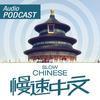#19: 很 囧 的 “囧 ”字
#19: The word "awkward" is awkward.
#19 : Le mot "maladroit" est maladroit.
很 囧 的 “ 囧 ” 字
Very simple "囧" word
汉字 的 总数 太 大 了 , 几乎 没有 人 能够 认识 全部 汉字 。
The total number of Chinese characters is too large, and almost no one can recognize all Chinese characters.
最 不 常用 的 汉字 就是 冷僻 字 。
The least commonly used Chinese characters are cold words.
有 一些 冷僻 字 很 难 写 , 有 一些 冷僻 字 很 难读 , 还有 一些 很 “ 囧 ”。
There are some rare words that are difficult to write, some are rare and difficult to read, and some are very "deaf".
很多 人 第一次 看到 这个 “ 囧 ” 字 的 时候 , 都 以为 它 只是 一个 符号 或 图片 。
When many people saw the word "囧" for the first time, they thought it was just a symbol or picture.
然而 , 它 的的确确 是 一个 汉字 , 而且 是 一个 历史悠久 的 汉字 。
However, it is indeed a Chinese character, and it is a Chinese character with a long history.
“ 囧 ” 字 最早 出现 在 甲骨文 。
The word "囧" first appeared in oracle bone inscriptions.
它 的 外形 就 像 太阳光 射进 窗户 , 所以 它 原来 的 意思 是 明亮 、 辉煌 。
Its appearance is like sunlight shining through a window, so its original meaning is bright and brilliant.
可是 , 以 现代人 的 眼光 , 这个 字 明明 就是 一张 扭曲 的 人脸 ; 而且 , 它 的 读音 又 和 “ 窘迫 ” 的 “ 窘 ” 字 相同 , 以至于 让 它 有 了 类似 的 含义 , 而 旧 的 含义 已经 不再 使用 。
However, from the perspective of modern people, this word is clearly a distorted human face; moreover, its pronunciation is the same as the word "distress" in "distress", so that it has a similar meaning, but the old meaning It is no longer used.
借助 网络 的 力量 , 这个 沉睡 了 千年 的 冷僻 字 被 网民 发扬光大 。
Mit Hilfe der Macht des Internets wurde dieses einsame Wort, das seit Tausenden von Jahren schläft, von den Internetnutzern weitergegeben.
With the help of the power of the Internet, this uncommon word that has been sleeping for a thousand years has been carried forward by netizens.
只 需 看看 这个 字 , 想像 一下 这个 表情 , 你 就 知道 怎么 用 这个 字 了 。
Schauen Sie sich das Wort an, stellen Sie sich den Ausdruck vor und Sie wissen, wie man ihn benutzt.
Just look at this word and imagine this expression, you will know how to use this word.
“ 囧 ” 字 代表 了 说话 人 的 面部 表情 : 两撇 眉毛 倒 下来 , 嘴巴 张得 很大 。
Das Wort "囧" steht für den Gesichtsausdruck des Sprechers: Die beiden Augenbrauen fallen herunter und der Mund ist weit geöffnet.
The word "囧" represents the facial expression of the speaker: two eyebrows fell down, and the mouth opened wide.
无奈 或者 尴尬 的 情景 都 可以 用 “ 囧 ” 来 形容 。
Hilflose oder peinliche Situationen können als "囧" bezeichnet werden.
Situations of helplessness or embarrassment can be described as "囧".
在 公众 场合 出丑 , 那 是 再 囧 不过 的 事情 了 。
Making a fool of yourself in public is nothing more embarrassing.
冷笑 话 都 是 很 囧 的 , 让 人 听 了 也 很 囧 。
Cold jokes are very embarrassing, and they are also embarrassing to listen to.
其他 只要 是 恶搞 的 东西 , 一般 也 都 很 囧 。
Other things that are spoofs are generally embarrassing.
“ 囧 ” 可以 形容 人 惊讶 的 表情 。
"囧" can describe a surprised expression.
人们 在 网上聊天 也 常常 用 这个 字 。
People often use this word in online chats.
这个 字 也 引起 了 一些 商业 效应 。
This word also caused some commercial effects.
有人 以 “ 囧 ” 为 主题 建立 了 网站 ; 有人 把 “ 囧 ” 作为 店名 ; 有人 拍 了 “ 囧 ” 电影 ; 有人 设计 了 “ 囧 ” 衣服 、“ 囧 ” 鞋 …… 真是 无 “ 囧 ” 不有 。
Some people set up a website with the theme of "囧"; some people use "囧" as the name of the store; someone made a "囧" movie; some people designed "囧" clothes, "囧" shoes... There really is no "囧".
不过 , 现在 的 这个 “ 囧 ” 已经 不是 优雅 的 书面 文字 , 在 正式 场合 还是 不用 为 好 。
However, the current "囧" is no longer an elegant written word, so it is better not to be used in formal occasions.

